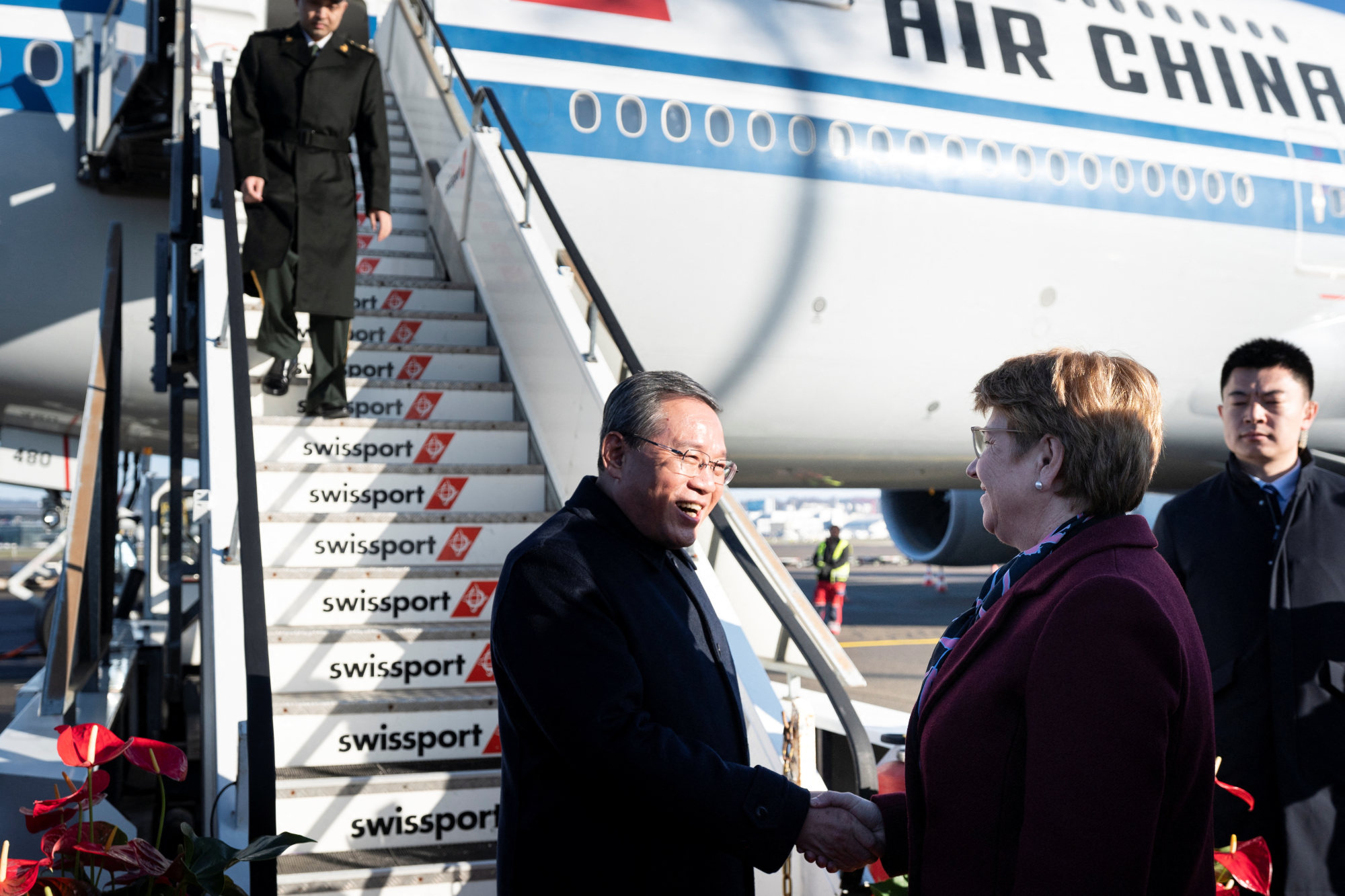Chinese Premier Li Qiang pledges closer Swiss ties as he opens European trip
“At present, China is advancing ‘Chinese modernisation’ … [and] is ready to enhance mutual exchanges and learning with Switzerland,” Li was quoted by Chinese state news agency Xinhua.
The premier, who also oversees the Chinese economy, highlighted Switzerland’s innovative capacity and high-quality products as he urged more Swiss enterprises to invest in China, while pledging that his country would “only open its doors wider and wider” to the world.
Li arrived in Zurich earlier on Sunday and was received at the airport by Amherd, who is also defence minister apart from holding this year’s rotating Swiss presidency.

According to the Xinhua readout, Amherd said Swiss companies were willing to deepen their presence in China, as she echoed a call by Li to promote mutual understanding, friendship and people-to-people exchanges.
China was Switzerland’s fourth largest individual trading partner in 2021, after Germany, the United States and Italy, though the European Union as a whole accounted for nearly 58 per cent of Swiss trade.
Major Chinese investors in Switzerland include tech firms Huawei and Neusoft, while Swiss investors in China include technology company ABB, food giant Nestle, and healthcare company Roche.
Switzerland, which has a policy of military neutrality, has also tried to keep its distance from the EU in terms of China policy amid growing tensions between Brussels and Beijing.
China-Swiss chip deal poke in the eye for US
In its first China foreign policy strategy issued in 2021, the Swiss government said its aim was to create “greater coherence” in its relations with Beijing, even if there were “clear differences in values between the two”.
Highlighting Switzerland’s “independent policy on China”, the document said China was a “priority country for its foreign policy”, adding that Bern “advocates the inclusion of China in the liberal international order and in efforts to overcome global challenges”.
It also said “human rights must be broached consistently in all bilateral and multilateral settings”. Human rights dialogue and trade interests were the two key issues for bilateral relations, media reports quoted Swiss Foreign Minister Ignazio Cassis as saying.
The 2021 strategy expires this year, with a new one due at a time when the rift between China and the West is growing wider.
The Swiss parliament has been discussing reducing dependency on Beijing, such as excluding Huawei from the 5G network, and increasing channels with Taiwan, which Beijing sees as a part of China to be reunited by force if necessary.
Switzerland, like most Western countries including the US, does not recognise Taiwan as an independent state.